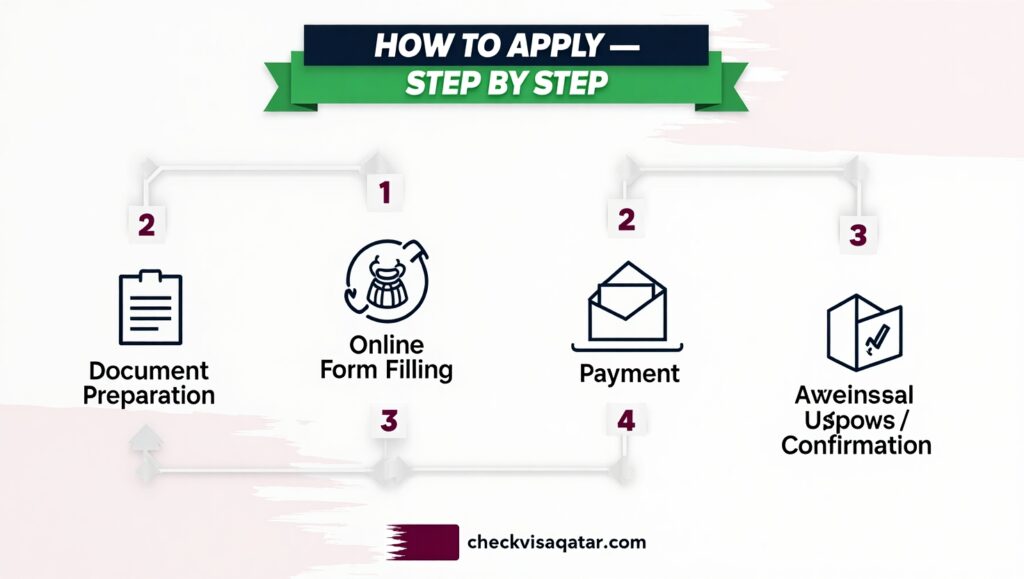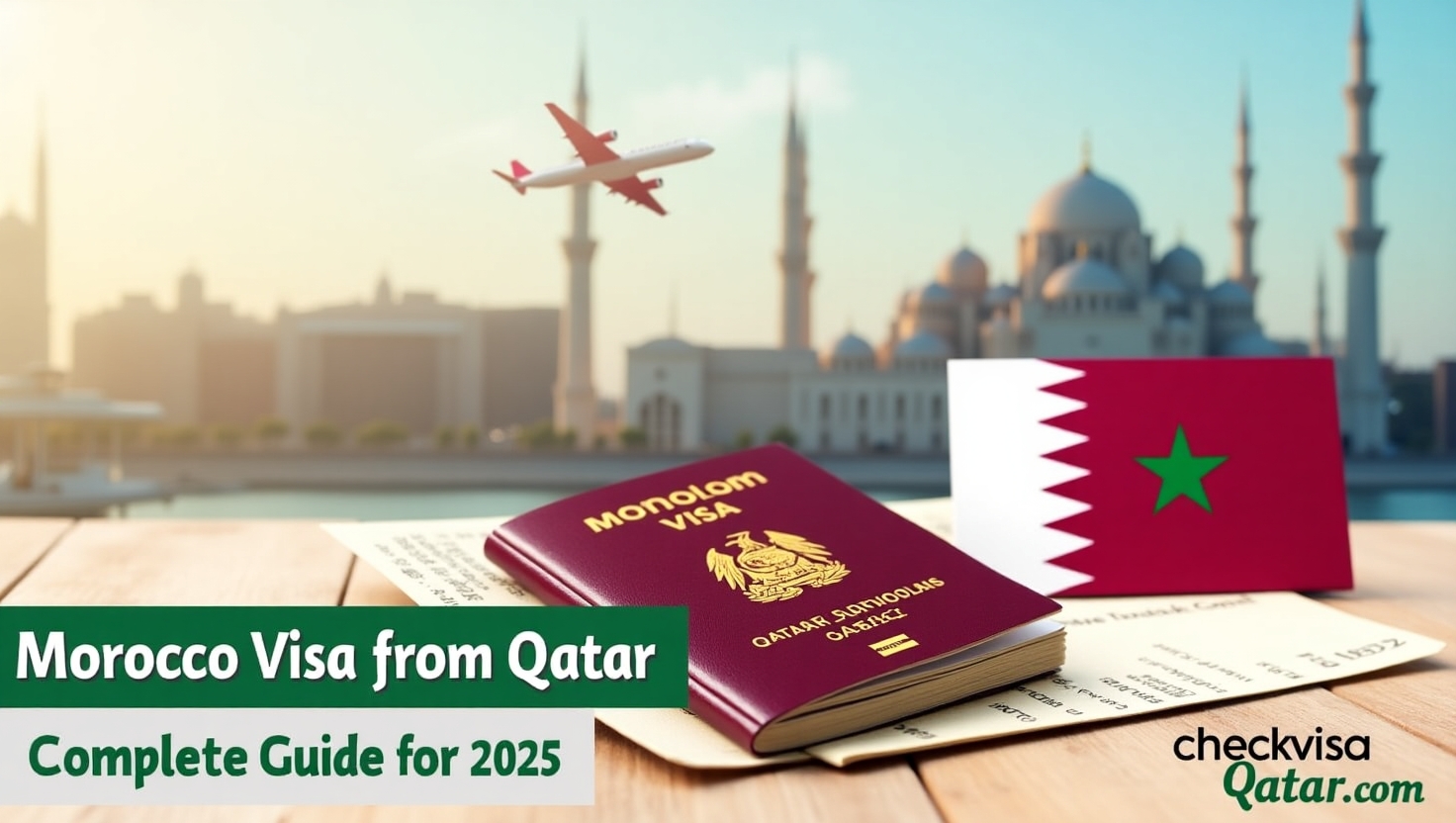Planning a trip from Qatar to Morocco often starts with excitement, but it quickly turns confusing. One person says Qatari citizens don’t need a visa, another says you must apply online, and then travel agencies throw in different requirements. The result? Stress, wasted time, and sometimes even canceled trips.
The solution is simple: understand the rules step by step, know whether you need a visa or not, prepare the documents properly, and apply through the correct channel. In this guide, I’ll break it all down in plain English so you don’t get lost in complicated terms.
Do Qatari Citizens Need a Visa?
If you are a Qatari passport holder, you don’t need a visa to enter Morocco for short stays of up to 90 days. You can visit for tourism, family trips, or short business meetings. All you need is a passport that is valid for at least six months, a return ticket, and proof of accommodation if asked. That’s it.
What About Non-Qatari Residents in Qatar?

Things change if you’re living in Qatar but your passport is from another country. In that case, the rule depends on your nationality. Some passports allow visa-free entry, others qualify for Morocco’s eVisa system, and the rest need a traditional sticker visa through the embassy.
For example, Indian passport holders living in Qatar must apply for a Morocco visa, but if they already have a valid US, UK, or Schengen visa, they may be eligible for Morocco’s eVisa.
The Types of Moroccan Visas Available
Most travelers from Qatar fall under three main categories:
- Tourist Visa: for leisure and family visits.
- Business Visa: for meetings or professional trips, usually requiring an invitation letter.
- eVisa: an online visa option for certain nationalities, often processed faster than a traditional embassy visa.
Documents You’ll Need
The required documents are almost the same for everyone, regardless of whether you apply for an eVisa or a consulate visa. You will need:
- A passport valid for at least six months with two blank pages.
- A completed visa application form.
- Recent passport-size photographs.
- A confirmed round-trip flight itinerary.
- Proof of accommodation (hotel booking or an invitation letter).
- Bank statements or financial proof showing you can afford the trip.
- Travel insurance that covers medical emergencies and repatriation.
- Supporting documents that explain your purpose of travel (like an itinerary or business invitation).
How to Apply – Step by Step

The process is simple if you break it down:
- Check if you need a visa. Qatari citizens don’t, but non-Qatari residents should confirm based on their passport.
- Choose your visa type. Most people go for a tourist visa, but you may need a business visa or be eligible for an eVisa.
- Prepare your documents. Keep both originals and copies ready.
- Submit your application. If eligible, apply online for an eVisa through Morocco’s official portal. Otherwise, apply at the Moroccan consulate in Qatar or through a trusted travel agency like Visa Guy Qatar or Dana Travel.
- Pay the visa fee. Payments are usually non-refundable, so double-check your application before submitting.
- Wait for approval. eVisas are processed within 24–72 hours, while consulate visas usually take 1–3 weeks.
Once approved, either download your eVisa or collect your stamped passport from the consulate.
Processing Times and Fees
- eVisa: Express service can take just 24 hours, while standard service is usually done within 72 hours.
- Sticker visa: Through the consulate, expect anywhere from 7 to 21 working days.
Visa fees vary depending on type and nationality, but remember: the fees are not refundable if your application is rejected.
Where to Apply in Qatar
You have three options:
- The official Morocco eVisa portal (if your nationality is eligible).
- The Moroccan consulate in Qatar (for sticker visas).
- Licensed travel agencies like Visa Guy Qatar or Dana Travel, who can assist you for an extra service fee.
Conclusion
Traveling from Qatar to Morocco doesn’t have to be stressful. The key is knowing whether you actually need a visa or not. For Qatari citizens, the answer is simple: no visa is required for stays up to 90 days. For non-Qatari residents, the process depends on your nationality. But once you confirm your eligibility and prepare the required documents, applying through the eVisa system. The Moroccan consulate or a trusted travel agency becomes a straightforward task.
With the paperwork out of the way. You can finally focus on the exciting part: exploring Morocco. From wandering through Marrakech’s colorful souks to riding camels in the Sahara Desert. Morocco offers experiences that are unforgettable. Don’t let visa confusion hold you back, prepare early, stay organized and step into your Moroccan adventure with confidence.
Frequently Asked Questions
Do Qatari citizens need a visa?
No, they can stay up to 90 days without a visa.
Can non-Qatari residents apply online?
Yes, if their nationality is eligible for eVisa, they can apply through the official portal.
How long does it take to process a visa?
eVisa: 24–72 hours. Consulate visa: 7–21 days.
What is the required bank balance?
There’s no fixed amount, but you must show that you can cover flights, hotels, and living costs. Usually, 3–6 months of bank statements are requested.
Is travel insurance mandatory?
Yes, it’s strongly recommended and often required. It must cover medical emergencies and repatriation.
Can I extend my stay beyond 90 days?
Qatari citizens must request an extension with local Moroccan authorities before the initial 90 days expire.

Mr. Ajmal is an experienced writer and editor specializing in technology and digital trends. With over 5 years of experience, he produces insightful articles on emerging tech, consumer electronics, and digital culture. Ajmal holds a degree in journalism and is passionate about making complex topics accessible to readers.

